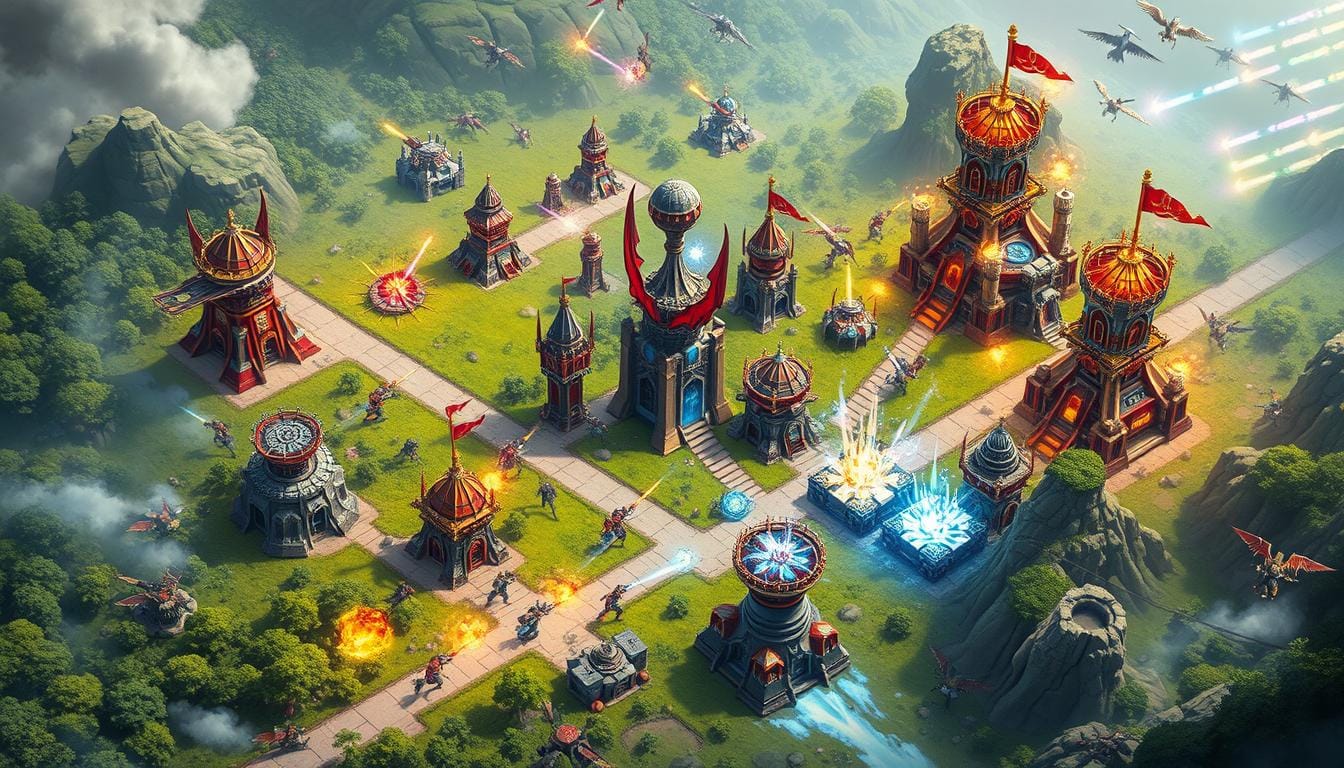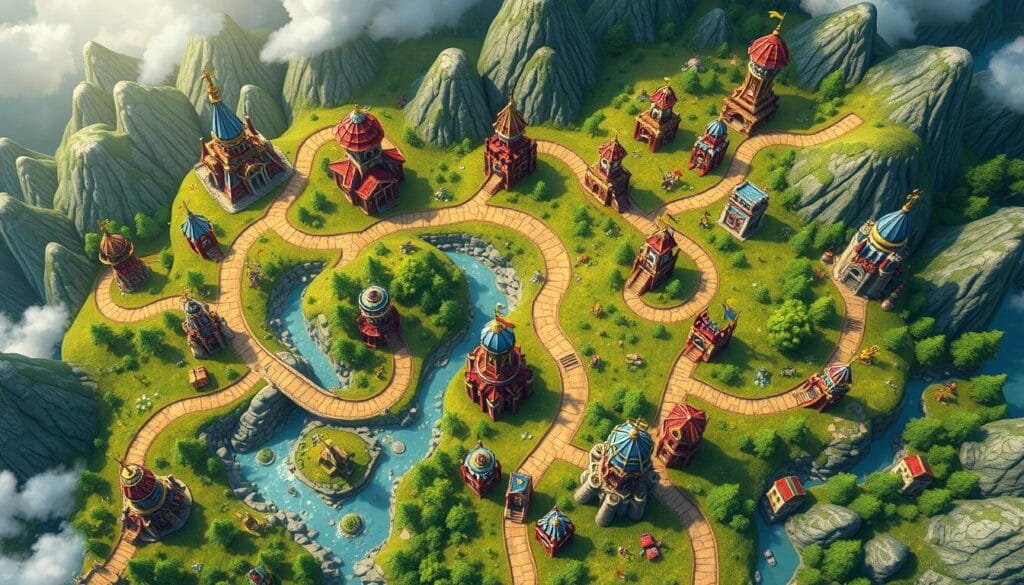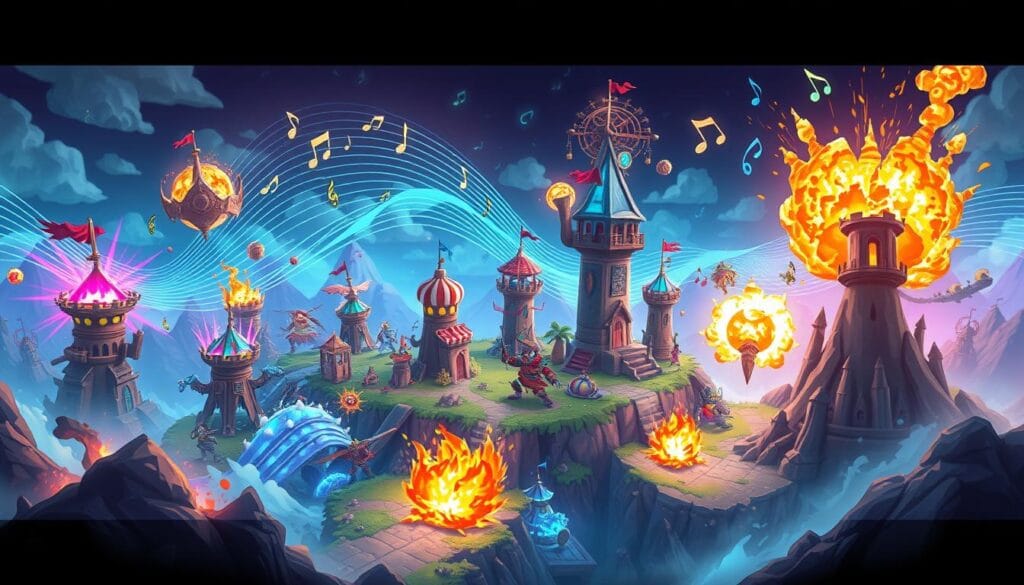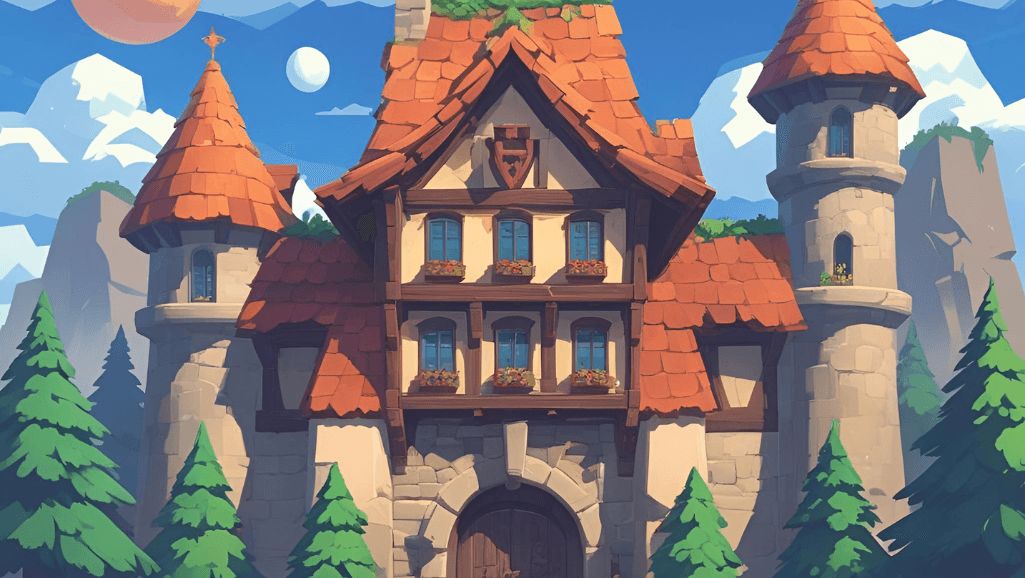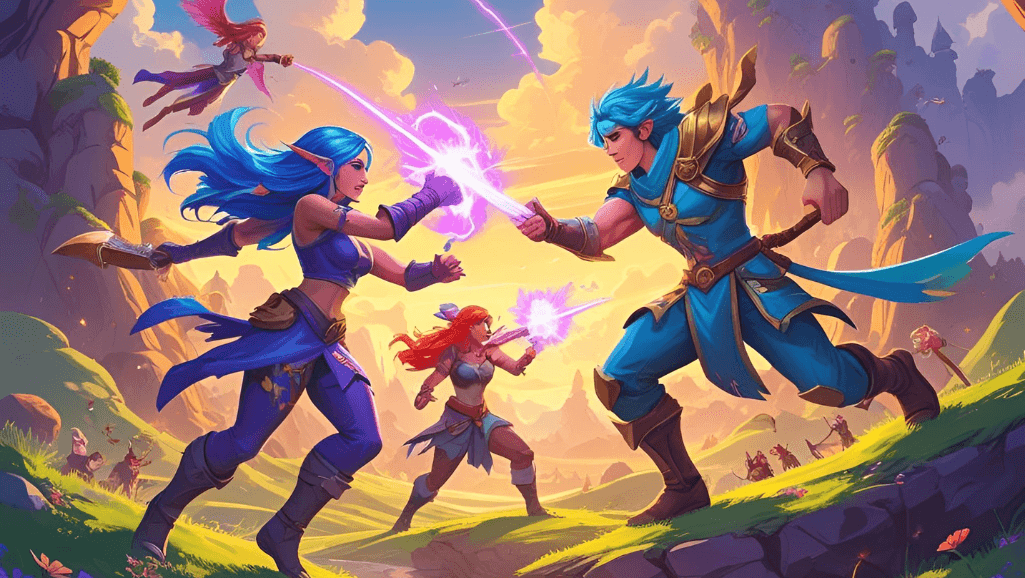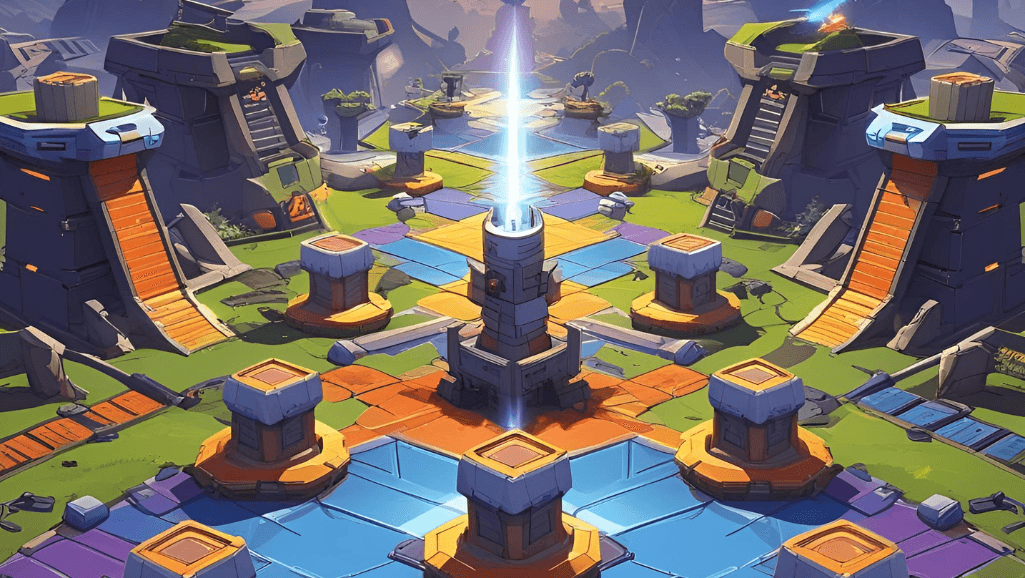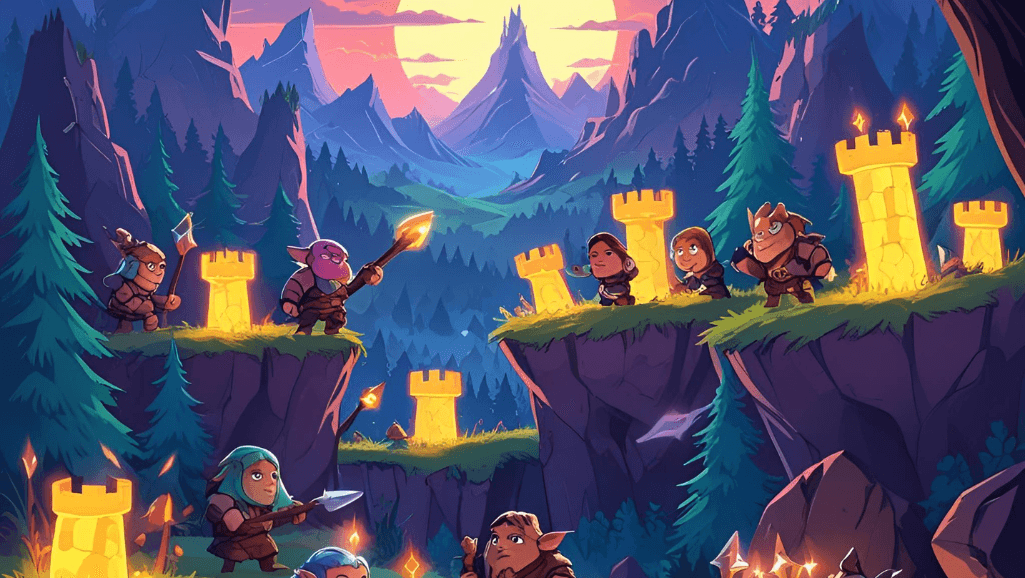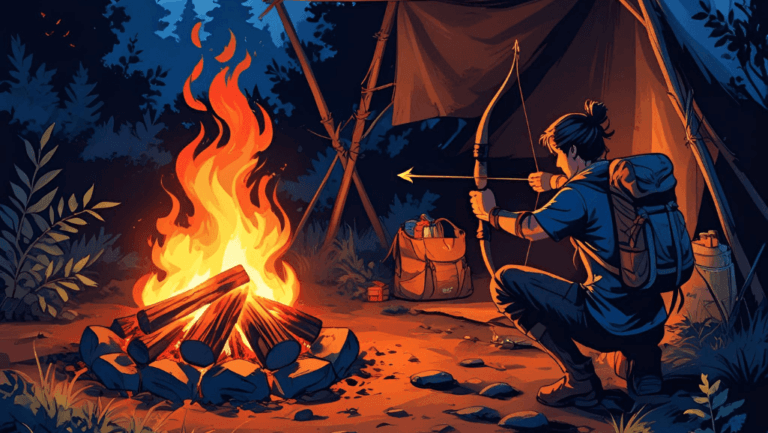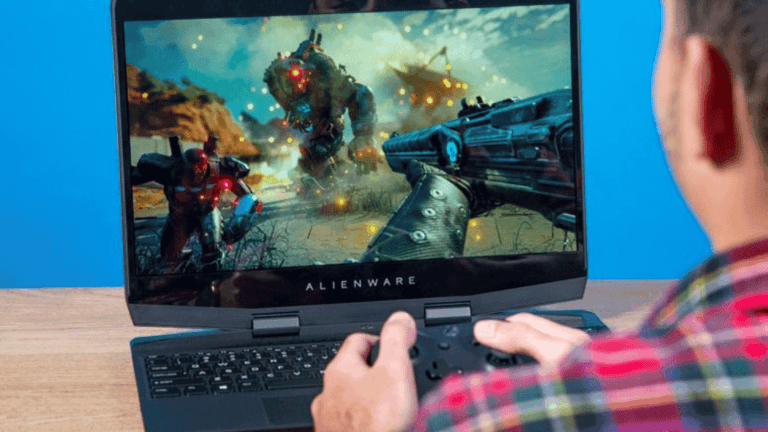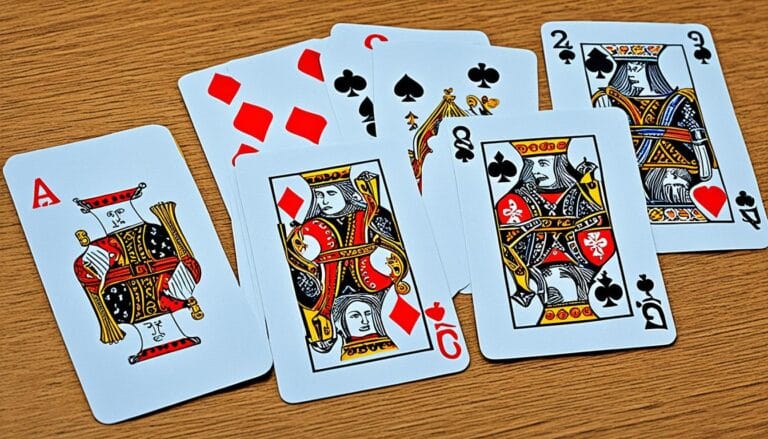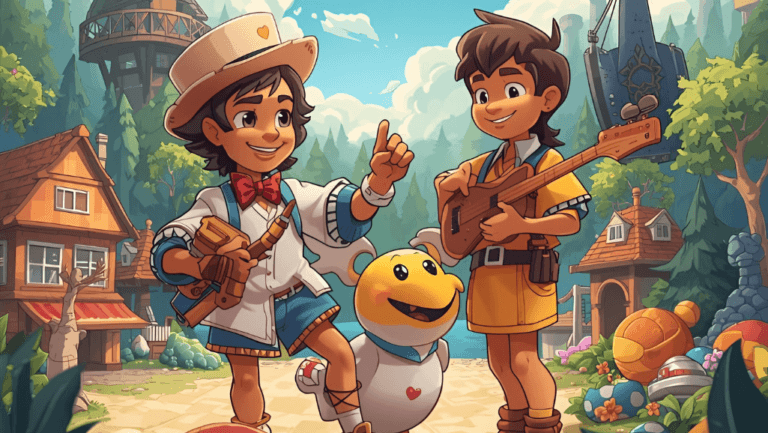Embark on an epic quest to master the art of defense with our comprehensive guide to tower defense games. Whether you’re a seasoned commander or a new player eager to strategically place your first tower, this article will provide you with a wealth of information about one of the most engaging strategy game genres.
To make your game stand out, design levels that are like mazes. This makes players think strategically. Use different tower types with special powers. This lets players try out new ways to play and upgrade.
Managing resources is key. Players must decide how to use their resources. They can build new towers, upgrade them, or fix damage. This adds a layer of strategy to the game.
The core of a good tower defense game is its gameplay. Make levels that are tough but rewarding. Use enemy AI that changes based on how players play. This makes each game different and exciting.
By mixing strategy and action, your game will keep players coming back. They’ll want to try new things and beat the challenges.
Key Takeaways
- Focus on designing intricat maze-like levels that encourage strategic thinking
- Incorporate diverse tower types with unique abilities and upgrade paths
- Implement resource management mechanics to balance tower building, upgrading, and repairs
- Create challenging scenarios with dynamic enemy AI that adapts to player strategies
- Offer a mix of strategic mechanics and thrilling action to keep players engaged
Understanding the Tower Defense Genre
Tower defense games are loved by many, thanks to their strategic gameplay and fun nature. Players must place defensive towers along enemy paths to protect a base. They also need to manage resources and upgrade towers to beat tougher waves of enemies.
A Look Back at the History of Tower Defense
The tower defense genre started with hidden levels in Warcraft III: The Frozen Throne. But, the idea of tower defense was around even earlier, in Atari’s “Rampart” from 1990. Fans created tower defense maps for Starcraft and Warcraft III, making the genre more popular.
Flash-based Web games, like Desktop Tower Defense in 2007, made tower defense games even more popular. The iPhone also helped, showing how games can be played on handheld devices. Games like Geodefense, Zombie Attack, Fieldrunners, 7 Cities, and Plants vs Zombies were big hits in the American mobile gaming market.
Defining Features of Tower Defense Games
Tower defense games stand out because of several key features. These include:
- Strategic placement of defensive structures along enemy paths
- Managing resources to build and upgrade towers
- Surviving increasingly difficult waves of enemies
- Utilizing tower upgrades to allow for differing player strategies
The tower defense genre has solidified itself as a staple in modern video gaming, alongside other casual gaming styles like Tetris and Sudoku.
Tower defense games offer a wide range of visuals and gameplay. This makes them appealing to many players. The genre is evolving, adding shooter elements and competitive multiplayer modes, seen in games like Tower Wars and Anomaly 2.
Choosing the Right Theme and Setting

Creating a great tower defense game starts with picking the right theme and setting. The right choice can draw players in and keep them interested. Fantasy and sci-fi themes are often popular choices.
The Allure of Fantasy and Sci-Fi
Fantasy settings take players to magical worlds with enchanted towers and mythical creatures. These settings let you get creative with designs and gameplay. But, medieval and fantasy themes are common. To be different, add a new twist to the classic fantasy setting.
Sci-fi themes bring a futuristic vibe with advanced tech and alien landscapes. Players can defend against alien invasions or robotic armies. Sci-fi allows for new weapons and abilities, making your game unique.
“The key to a successful tower defense game is finding a theme that resonates with your target audience while providing a unique and engaging experience.”
The Impact of Urban and Natural Landscapes
Choosing between urban and natural landscapes affects gameplay. Urban settings are familiar and offer strategic spots. Defending city landmarks or streets against invaders adds excitement.
Natural environments bring scenic variety and unique challenges. From forests to wastelands, these settings offer different obstacles and opportunities. Defending in a jungle or a mountain pass adds visual interest and depth.
Top mobile gamesshow a variety of themes and settings. When picking your theme and setting, think about your audience, unique gameplay, and visuals. A well-chosen theme and setting can make your game immersive and engaging.
Designing Engaging Gameplay Mechanics
Every great tower defense game has key mechanics that draw players in. With over 170 successful titles, making your game stand out is key.
Strategic tower placement is vital. Stardock, known for Siege of Centauri, says it’s important to have various tower types. This variety keeps the game fresh and exciting.
Tower Placement and Upgrade Systems
Good tower placement systems give players choices and let them customize their defenses. Upgrades add depth, letting players improve their towers as they play. This keeps players interested and eager to try new things.
Enemy AI: Creating Challenging Opponents
Creating tough enemy AI is essential. Tower defense games need diverse creeps with unique behaviors. This variety keeps players guessing and makes the game exciting.
Reward Systems: Encouraging Player Progress
Rewards are key to keeping players motivated. Unlockables, power-ups, and achievements motivate players to keep playing. A good reward system makes players feel accomplished and encourages them to try new strategies.
By focusing on strategic tower placement, challenging enemy AI, and rewarding progression systems, developers can create tower defense games that captivate players and keep them coming back for more.
Crafting a Compelling Storyline
A good storyline is not a must for a tower defense game to succeed. Yet, it can make the game more engaging and fun. By adding a story to the gameplay, developers can make the experience more immersive and exciting.
Character Development in Tower Defense Games
Creating a strong storyline starts with character development. Introducing unique characters that interact with the player can add depth and personality. These characters can be friends, foes, or neutral figures that give context and motivation.
Using voiceovers can make characters feel more real and engaging. While it might be expensive and time-consuming to record professional voiceovers, developers can use mobile phones and apps to create temporary audio during development.
Integrating Narrative into Gameplay
To make a storyline work, it needs to blend well with the gameplay. This can be done in several ways, such as:
- Small comic book-like cutscenes that advance the story between levels
- A map that shows how the story unfolds as the player progresses
- Placing levels in locations that hint at the story’s progression
- Using pop-up speech boxes within the game for storytelling, without interrupting play
While some might say gameplay is more important, a storyline can make a game more memorable and enjoyable. But, adding a story requires time and resources, including creating cut scenes and new artwork.
“A well-crafted storyline can transform a good tower defense game into an unforgettable experience.”
Visual Aesthetics: Art and Graphics
In tower defense games, how they look is key to keeping players hooked. The art style can make or break the game’s feel. It should match the game’s theme and message, whether it’s fun and colorful or dark and serious.
Gris is a great example of using visuals to tell a story. Its beautiful watercolor scenes and simple characters help tell a story of loss. This makes the game unforgettable for those who play it.
Importance of Art Style in Player Engagement
The art style of a game can really affect how much players enjoy it. A game that looks good and has a clear style will grab players’ attention. Indie games with unique visuals often do well, like Hyperlight Drifter with its pixel art.
“The art style of a game is like the cover of a book – it’s the first thing that catches your eye and draws you in. It sets the tone for the entire experience and can make or break a player’s engagement with the game.”
Tools and Software for Game Design
Developers have many tools to make tower defense games look amazing. Unity and Unreal Engine are top choices. They help create detailed worlds and smooth animations, letting developers focus on their vision.
For mobile games, the design must be simple and easy to use. This is because mobile screens are smaller and touch controls are different. Good design makes games look great and work well on all devices.
Incorporating Sound Design for Immersion
Sound design is key in making tower defense games immersive and fun. Developers use sound effects, music, and atmosphere to pull players into the game. This approach has become more important, thanks to VR games where up to 70 voices can play at once.
Thanks to new tools, adding immersive audio like surround sound is easier. Better audio equipment is now more affordable. But, using surround sound in 2D games is tricky, mainly for indie developers.
The Role of Sound Effects in Gameplay
Sound effects are vital for player feedback in tower defense games. They help players know the effects of their actions. Sounds for enemy movements and attacks add to the game’s excitement.
- Use high-quality, unique sound effects that fit the game’s theme and setting
- Ensure sound effects are distinct and easily recognizable
- Balance sound effect volume to avoid overwhelming the player
Music and Atmosphere: Setting the Tone
Background music and atmospheric sounds set the mood of your game. The right music can evoke feelings of urgency, triumph, or mystery, depending on the game’s theme and setting. These elements help players feel like they’re part of the game world.
Choose music that complements the game’s theme and pacing, with tracks that evolve as the game progresses.
Atmospheric sounds, like environment ambience and weather effects, enhance the game’s atmosphere. Make sure the music and sounds blend well with the game’s effects. By focusing on sound design, your game can stand out and keep players hooked for hours.
Engaging the Community: Player Feedback
Player feedback is vital for any tower defense game’s success. It’s important to talk to your community through forums, social media, and in-game chat. This way, developers can learn what players enjoy and what needs improvement.
Core Defense, a unique tower defense game, reached 2.6K players at its peak. Now, it keeps 100-300 players online. Despite good feedback, the game faces challenges. Developers are working hard to improve the game based on player suggestions.
Introduction to Tower Defense Games
What is a Tower Defense Game?
A tower defense (TD) game is a subgenre of strategy games where the objective is to defend territories from waves of enemies. Players strategically place defensive towers along the enemy’s path to obstruct, attack, and defeat incoming foes. Strategic planning and resource management are essential, requiring players to upgrade defensive units and adapt to increasingly difficult waves of enemies, often until their defenses are overwhelmed.
Core Gameplay Mechanics
Core mechanics in tower defense games involve defending a base from waves of enemies by strategically placing towers. Players can earn in-game currency to enhance their defenses through various actions.
| Action | Result |
|---|---|
| Defeating enemies | Earning in-game currency |
| Using in-game currency | Repairing and upgrading towers |
Enemies traverse multiple paths, each wave presenting new challenges. Maps and levels unlock as players progress. Some games evolve into turn-based formats, incorporating build, defend, and repair phases. “Mazing,” or creating long paths for enemies, is a key defense strategy.
Enduring Popularity of Defense Games
The enduring popularity of tower defense games lies in their blend of strategic planning and quick decision-making. These games enhance critical thinking and adaptability as players anticipate enemy movements and innovate defensive strategies under pressure. They appeal to those who enjoy puzzles and strategy, offering endless replayability and satisfaction as players successfully defend against enemy invasions, often with solo or 2-player modes that reward challenge completion with upgrades.
The Evolution of Tower Defense Games
From Early Classics to Modern Titles
Early influences on tower defense games can be seen in classics like Space Invaders, where players defended territory against waves of enemies. Later games and custom maps introduced new elements to the genre:
| Game | Key Feature |
|---|---|
| Rampart | Player-placed defenses with build, defend, and repair phases. |
| StarCraft: Brood War (e.g., Turret Defense) | Early examples of the genre using custom maps. |
The rise of Flash developers and app stores led to modern hits like Desktop Tower Defense and Plants vs. Zombies, which popularized the genre on mobile platforms.
New Units and Features in TD Games
Early PC gaming included tower defense elements in games like Gandalf the Sorcerer and Pedro, featuring diverse enemy types and player-placed obstructions. Some games brought new perspectives and mechanics to the genre, as shown below:
| Game | Innovation |
|---|---|
| Dungeon Defenders | Third-person perspective |
| Anomaly: Warzone Earth | “Reverse tower defense” |
Furthermore, innovations like deck-building mechanics in Prime World: Defenders and continued updates such as Plants vs. Zombies 2 keep the genre fresh.
Impact of Real-Time Multiplayer Modes
The impact of real-time multiplayer modes has transformed the tower defense genre, creating dynamic and collaborative gaming experiences. Games like Rampart pioneered multiplayer defense strategies, while titles such as Legion TD 2 support up to eight-player co-op, enhancing strategic coordination. Minion Masters blends tower defense with card game mechanics, offering engaging 1v1 or 2v2 battles, showcasing the evolving nature of online strategic gaming.
Building a Community Around Your Game
Creating a strong community is essential for your game’s success. By talking to players on different platforms, developers can make players feel part of something. This encourages players to share their thoughts and ideas.
- Hosting regular community events and tournaments
- Encouraging player-generated content and mods
- Featuring player achievements and highlights
- Collaborating with influencers and content creators
“The Core Defense community has been instrumental in shaping the game’s development. Their passion and dedication inspire us to continuously improve and deliver the best possible experience.”
Utilizing Beta Testing for Improvement
Beta testing is a great way to get feedback and find areas to improve before your game launches. By testing with a few players, developers can see what works and what doesn’t. They can also find bugs and balance issues.
Core Defense used a Steam demo to test the game before its release. This demo got about 3,000 wishlists. It helped developers get feedback from many players and make changes before the game came out. By listening to player feedback during beta, developers can make a better game for everyone.
Gameplay Strategies in Tower Defense
Essential Tips for Building Your Defense
In a typical tower defense game, the player’s main objective is often the survival of their base, rather than the survival of a particular hero unit. Strategically placing towers is paramount, and an essential defense strategy is “mazing.” This tactic involves creating a long, winding path of towers, or “maze,” to lengthen the distance the enemies must traverse. This gives the player more time to inflict damage and ultimately defeat the incoming wave of enemies, improving the player’s strategic advantage in the game.
Wave Management and Resource Allocation
Effective wave management and careful resource allocation are critical to success in any tower defense game. As each level progresses, the difficulty increases, requiring players to optimize their resources and defenses to prevent adversaries from breaching their base. Strategic placement of towers, combined with timely upgrades, is vital for managing increasingly challenging waves of enemies, allowing players to secure their territories and survive the endless waves.
Utilizing Hero Units Effectively
Hero units can significantly impact the outcome of battles in a tower defense game. Strategically placing hero units to complement your existing defensive towers can turn the tide against even the most formidable enemies. Effectively using hero abilities and understanding their unique strengths is crucial for overcoming challenging waves. Upgrading hero units ensures they remain effective as the difficulty increases, and the player can secure their strategic advantage.
Recommended Tower Defense Games
Standout Titles on PC
The PC platform offers an array of standout tower defense games. Plants vs. Zombies utilizes a variety of plants to defend against invading zombies, demanding on-the-go thinking for plant placement and growth. Dungeon Defenders 2 offers a third-person perspective, while Bloons TD 6, often called the ultimate tower defense game, provides endless strategic depth. Kingdom Rush Vengeance provides access to 20 unique tower types for defending against enemy empires, and Orcs Must Die 3 immerses players in third-person action to dispose of every orc imaginable. These PC games offer diverse strategic challenges and captivating gameplay.
Top Mobile Tower Defense Games
Mobile gaming platforms host several exceptional tower defense games perfect for on-the-go play. Titles like Tower Swap, TimeWarriors, AOD – Art Of Defense, Cursed Treasure 2, and Bloons Tower Defense 4 are among the best tower defense games available on mobile phones and tablets. These defense games feature intuitive touch controls and are often designed for shorter gameplay sessions, making them ideal for mobile play. Mobile tower defense games offer strategic depth and engaging challenges for players on the move.
Exploring Kingdom Rush and Its Legacy
The Kingdom Rush franchise is a widely known icon in the tower defense community. Vengeance, the fourth entry in the series, is often hailed as Kingdom Rush at its best, offering an action-packed experience. The defense game’s gameplay mechanics are known for their strategic depth. Players strategically place and upgrade their towers to command the battlefield and defend their kingdom. As one of the best tower defense games, Kingdom Rush has left a significant legacy on the genre.
Monetization Strategies for Your Game
Creating a successful tower defense game means picking the right way to make money. The mobile game market is growing fast, expected to hit over $98 billion USD by 2024. There are two main ways to make money: free-to-play and premium pricing.
Free-to-play games let players download and play for free. They make money through in-app purchases. In 2021, people spent $107.3 billion USD on these purchases. This approach can attract more players because it’s free to start.
Free-to-Play vs. Premium Pricing Models
Premium pricing means players pay once to play the game. This model gives a full experience right away but might not get as many players. Premium games are popular with those who want a complete, uninterrupted game.
In-App Purchases: Finding the Balance
When using in-app purchases, finding the right balance is key. Offer items or features that make the game better without feeling too pushy. Starter packs, season passes, and contextual purchases can add value and make money.
Success in monetization comes from keeping players happy and engaged. A good game with smart monetization can keep players coming back and make money too.
Marketing Your Tower Defense Game
Marketing is key to getting your tower defense game to the right people. In today’s gaming world, using game marketing strategies well is vital. Social media and influencer partnerships help you reach more people and connect with them.
Social Media Strategies for Engagement
Social media is a great way to talk to your audience and grow a community. Here are some tips to boost engagement:
- Post updates on your game’s progress, new features, and events
- Share eye-catching content like screenshots and videos
- Host contests and giveaways to get players involved
- Always reply to comments and feedback quickly
By giving value and building a community, you’ll get a loyal group of players. They’ll look forward to your game and updates.
Is Tower Defense Simulator Good?
Tower Defense Simulator, a popular game on platforms like Roblox, introduces a unique twist to the classic tower defense gameplay mechanics. Players collaborate to strategically place defensive towers and defend against waves of enemies. The game often features a variety of defensive units, maps, and modes, providing a dynamic experience. Players must coordinate their upgrades and defense strategies. Many video games offer similar experiences, but only a few of them have the unique flair of this title.
Conclusion: The Appeal of Tower Defense Games
Why Casual and Hardcore Players Enjoy the Genre
The tower defense genre holds broad appeal due to its blend of accessible gameplay and strategic depth. Casual players enjoy the quick, engaging experience of placing towers and watching their defenses in action, while hardcore players dive deep into optimizing tower placement, resource allocation, and hero abilities. This makes tower defense games a favorite for both short bursts of play and extended strategic sessions. Both groups of players enjoy the tower defense games’ ability to make them feel smart.
The Future of Tower Defense Games
The future of tower defense games is set to evolve with new units and features, as developers experiment with innovative gameplay mechanics and defensive strategies. We can expect to see hybrid genres such as tower defense combined with elements from action, shooter, or even RPG games to keep the gameplay fresh. Multiplayer modes and new platforms like browser-based gaming will further broaden the appeal of the best tower defense games in years to come.
Final Thoughts on Building Your Ultimate Defense
Building the ultimate defense in a tower defense game requires strategic thinking, resource management, and adaptability. Players must constantly analyze the battlefield, anticipate enemy waves, and adapt their defenses accordingly. Whether you prefer to focus on upgrading existing towers or experimenting with new tower combinations, mastering these strategies will lead to endless hours of fun and epic victories in this popular gaming genre. Strategically placing each tower will provide an advantage.
Influencer Partnerships: Expanding Reach
Working with gaming influencers can really help your game get noticed. Influencer partnerships let you reach their fans and gain trust in the gaming world. When picking influencers, think about these things:
- Relevance: Pick influencers who match your game’s style and audience
- Engagement: Look for influencers who can spark real conversations
- Reach: Check their followers and views to see if they can make a big impact
- Authenticity: Choose influencers who really like and believe in your game
Influencer marketing is a big deal in game marketing, with 90% of marketers seeing it as a good way to grow and attract players.
By using social media and influencer partnerships, you can market your tower defense game well. This will help you get a loyal player base and succeed in the gaming world.
Keeping Players Coming Back for More
To keep players hooked, it’s key to update your game often. Add new towers, enemies, levels, and challenges. This keeps the game fresh and fun for all players.
Hosting community events is a great way to build loyalty. Tournaments, seasonal events, and challenges let players interact and compete. These activities strengthen their bond with the game, making them more likely to play for a long time.
Regular Updates and New Content
Keeping the game exciting means regular updates. Introduce new towers and enemies that challenge players. Also, add features like detailed tooltips and tower range displays to improve the experience.
Listen to what your players want. Use their feedback to make updates that they’ll enjoy. This way, you keep the game feeling fresh and engaging.
Community Events: Fostering Player Loyalty
A strong community is vital for your game’s success. Community events help build this. Tournaments, seasonal events, and challenges offer players new ways to play and compete.
These events make players feel part of a community. They encourage players to return and engage more. Consider teaming up with influencers or other games to attract more players. For example, working with popular RPG mobile games can help grow your audience.



